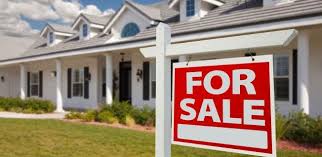Buying a property is an essential step for many individuals. Become owner is the project of a lifetime and we obviously want to miss anything. To achieve your real estate purchase, the

questions it is important to ask yourself before you begin:
What type of purhase: new, old, furnished?
The real estate market is made up of old and new properties:
=> New housing: you have several choices:
Completed housing: the property construction is complete when you buy.
Buying on map: you invest in a real estate project that is in the plan state.
=> Old real estate: it is the choice of many buyers.
What type of goods: housing, land, business property, except real estate?
Depending on your project you can buy different types of properties:
=> Accommodation: Are you more tempted by buying a house to renovate, purchase a second home, buying a garage?
=> Plot: purchase of land serviced or not, building or not, buying a forest?
=> Commercial property: according to your business you can opt for buying a shop, buying office, buying a shed, buying a farm.
=> Exceptional properties: ask about purchasing castle and buying barge.
Finally, you can totally buy a home abroad.
Buytolet: a good project?
Many investors choose to buy their property for rent and not to dwell. With the real estate tax exemption, you can buy a property that will be fully funded by the banks, the state and the rent paid by the tenant...
It can be financially rewarding to invest in a furnished property, but also opt to purchase an annuity. Finally, note that the purchase of council housing and the purchase of a building offer great investment opportunities.
To build, what are the steps to follow?
To build requires respect and loop one at one different key stages: field research, buying a land, signing the contract, obtaining building permits. For the construction, it is important to know to whom to entrust the project: an architect, a house builder or a contractor?
Finally, remember to ask the builder what guarantees and insurance and how much you will return the cost of construction.
Your profile: married or unmarried?
If you get into a property purchase, know that the law does not provide the same provisions for a married couple or an unmarried couple.
Before buying: critical issues...
Are you looking for the house or apartment of your dreams? It is important to know how to search efficiently to save time. Once you have decided, do not forget to check out a number of housing key issues to validate everything.
The display of energy performance of housing is required. Check it carefully: your heating charges depend!
Contract: the purchase conduct
When you find the property you need, then comes the crucial step of the sales contract. Know the difference between an offer to purchase, a sales agreement and a promise of sale. Each of these precontracts you fully committed to the seller before the deed signing that will make you an owner.
What obligations for the seller and the buyer?
Buying a property involves certain obligations for the seller and for the buyer. The seller must give the buyer a general real estate diagnosis of the property.
Price and financing: how to buy your property?
Funding is the most important part of your property purchase. To prepare this funding, do not forget to explore certain issues such as:
=> How to negotiate the sale price of property?
=> Buy with or without capital?
=> Who can get a mortgage?
=> What are the housing assistances you may be entitled?
=> Can you qualify for a tax credit?
=> What real estate lease with option to purchase?
Finally, it is important to plan ahead your purchase budget taking into account legal fees, agency fees, condominium fees if applicable, the property tax and residence tax.

